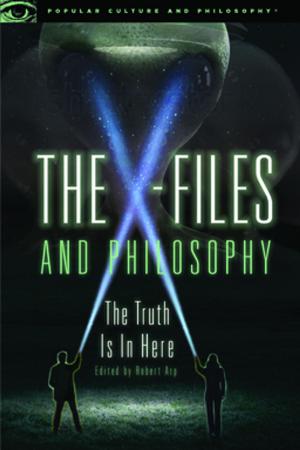Kierkegaard After MacIntyre
Essays on Freedom, Narrative, and Virtue
Nonfiction, Religion & Spirituality, Philosophy, Ethics & Moral Philosophy| Author: | Alasdair MacIntyre, Philip L. Quinn | ISBN: | 9780812699319 |
| Publisher: | Open Court | Publication: | November 2, 2015 |
| Imprint: | Open Court | Language: | English |
| Author: | Alasdair MacIntyre, Philip L. Quinn |
| ISBN: | 9780812699319 |
| Publisher: | Open Court |
| Publication: | November 2, 2015 |
| Imprint: | Open Court |
| Language: | English |
In his extraordinarily influential book on ethics, After Virtue, Alasdair MacIntyre maintained that Kierkegaard's notion of "choosing" to interpret one's choices in ethical terms implies an arbitrary and irrational leap. MacIntyre's critique of Kierkegaard has become the focal point for several new interpretations of Kierkegaard that seek to answer MacIntyre. Kierkegaard After MacIntyre brings together both new and already published articles in this vein, with a new reply by Professor MacIntyre.
Kierkegaard After MacIntyre reflects the emergence of a new consensus in Kierkegaard scholarship. This consensus is strongly anti-irrationalist and contemporary neo-Aristotelian virtue ethics, clarifying their common ground as well as their differences.
In responding to MacIntyre's 'irrationalist' objection, the authors clarify the sense in which Kierkegaard's own conception of freedom is teleological and suggest that his understanding of the development of ethical personality involves a quest for narrative unity, a commitment to practices involving social values, and a self-understanding conditioned by historical reality-all of which are also central themes in MacIntyre's work on virtue ethics. Despite MacIntyre's diagnosis of Kierkegaard's existential approach to ethics as unsuccessful, some of Kierkegaard's insights may support MacIntyre's own theses.
"Kierkegaard After MacIntyre is an outstanding book which brings Kierkegaard into direct conversation with one of the most important contemporary philosophers. The conversation contains both lively disagreements and illuminating analyses, all focused on issues of fundamental importance for human life." -C. Stephen Evans, Calvin College
". . . this wonderfully edifying collection of essays." -Timothy P. Jackson, Emory University
"In addressing MacIntyre's charge that for Kierkegaard the adoption of the ethical can only be a 'cirterionless choice,' this stimulating set of essays by well-known Kierkegaard scholars provides a welcome addition to the literature on Kierkegaardian ethics. Kierkegaard After MacIntyre provides a valuable exploration of the role of reasoning, will, and passion in moral life, as well as of the relation between aesthetic and ethical dimensions of life." -M. Jamie Ferreira, University of Virginia
In his extraordinarily influential book on ethics, After Virtue, Alasdair MacIntyre maintained that Kierkegaard's notion of "choosing" to interpret one's choices in ethical terms implies an arbitrary and irrational leap. MacIntyre's critique of Kierkegaard has become the focal point for several new interpretations of Kierkegaard that seek to answer MacIntyre. Kierkegaard After MacIntyre brings together both new and already published articles in this vein, with a new reply by Professor MacIntyre.
Kierkegaard After MacIntyre reflects the emergence of a new consensus in Kierkegaard scholarship. This consensus is strongly anti-irrationalist and contemporary neo-Aristotelian virtue ethics, clarifying their common ground as well as their differences.
In responding to MacIntyre's 'irrationalist' objection, the authors clarify the sense in which Kierkegaard's own conception of freedom is teleological and suggest that his understanding of the development of ethical personality involves a quest for narrative unity, a commitment to practices involving social values, and a self-understanding conditioned by historical reality-all of which are also central themes in MacIntyre's work on virtue ethics. Despite MacIntyre's diagnosis of Kierkegaard's existential approach to ethics as unsuccessful, some of Kierkegaard's insights may support MacIntyre's own theses.
"Kierkegaard After MacIntyre is an outstanding book which brings Kierkegaard into direct conversation with one of the most important contemporary philosophers. The conversation contains both lively disagreements and illuminating analyses, all focused on issues of fundamental importance for human life." -C. Stephen Evans, Calvin College
". . . this wonderfully edifying collection of essays." -Timothy P. Jackson, Emory University
"In addressing MacIntyre's charge that for Kierkegaard the adoption of the ethical can only be a 'cirterionless choice,' this stimulating set of essays by well-known Kierkegaard scholars provides a welcome addition to the literature on Kierkegaardian ethics. Kierkegaard After MacIntyre provides a valuable exploration of the role of reasoning, will, and passion in moral life, as well as of the relation between aesthetic and ethical dimensions of life." -M. Jamie Ferreira, University of Virginia















